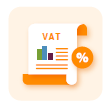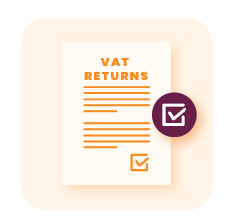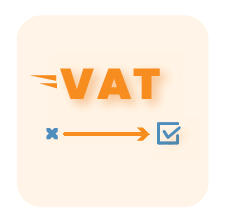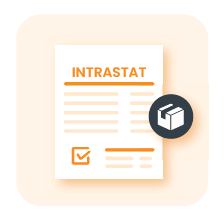Invoicing in Hungary
Under Hungarian VAT regulations, taxable persons are generally required to issue an invoice for all taxable supplies of goods or services, as per Article 159 of the VAT Act.
However, there are some exceptions to this rule, such as when the buyer is not a taxable person. In certain cases, it may not be necessary to issue an invoice unless specifically requested to do so by a non-taxable person, such as in the case of cash payments or zero-rated supplies of international air passenger transport. It is still generally mandatory to provide receipts in these situations.
Learn more about invoice requirements in Hungary in our comprehensive guide.
Selling in Hungary?
Full VAT invoice
The date of issuance of the invoice
- A unique sequential number that identifies the invoice
- The tax number of the supplier who provided the goods or services
- The tax number of the recipient who received the goods or services, for whom the taxpayer is responsible for paying the VAT or for whom a supply of goods was received.
- The full name and address of both the supplier and the customer receiving the goods or services
- A description of the goods or services provided, including the quantity of goods and description of services, as well as the relevant tariff heading or SZJ code, at the discretion of the taxable person issuing the invoice. If applicable, the extent and nature of the services rendered should also be included if it can be expressed in a unit of measurement.
- The date of the invoice, as well as the date of the supply if different from the date of issue of the invoice.
- The taxable amount and unit price of the goods exclusive of VAT.
- If the supply of goods or services is exempt or subject to reverse charge, a reference to the relevant provision of law or any other reference indicating the exemption or reverse charge procedure.
- In the case of intermediaries issuing invoices in triangular transactions subject to the simplification scheme, a legend such as “Triangulation Transaction — Article 141 EC Council Directive 2006/112/EC — Reverse Charge.”
- If a new means of transport is supplied, the invoice must contain data establishing that it is supplied under conditions specified in the VAT Act.
- If the person liable for paying VAT is a financial representative, the invoice must include the name, address, and tax number of the financial representative.
- Other data indicating the use of special regimes, such as self-billing, may also be required.
Download the Hungarian VAT Guide
Electronic Invoicing
Electronic invoices are generally optional and subject to acceptance by the recipient. However, all invoices must be reported electronically through Real-time Reporting.
Hungarian taxpayers may issue electronic invoices using either the Hungarian Tax Authority’s invoicing software, third-party software, or their own proprietary software.
To comply with new obligations related to VAT invoicing software based on the OECD’s Standard Audit File-Tax (SAF-T) standard, Decree No. 23/2014 (VI.30) requires Hungarian taxpayers to notify their local tax authorities of the authorized accounting software they use to issue electronic invoices. The Decree also includes guidance on the Electronic Data Interchange and the written agreement between the issuer and recipient, which is required to use this system.
Real-time Reporting
According to Article 317 and Annex 10 of the Hungarian VAT Act, most transactions require Hungarian taxpayers to submit invoice data to the Hungarian Tax Authority. To do this, they need to register on the Tax Authority’s dedicated online portal and report transactions using an integrated software system or by directly uploading them onto the portal. The invoice data must be in XML format.
Invoices must be submitted once they are finalized in the relevant billing system and can only be amended through a credit note or another amending document. Invoices that are not generated using electronic billing software must be uploaded manually within specified time limits.
Last Updated: 04/04/2024
Disclaimer
The information provided by Global VAT Compliance B.V. on this webpage is intended for general informational purposes only. Global VAT Compliance B.V. is not responsible for the accuracy of the information on these pages, and cannot be held liable for claims or losses deriving from the use of this information. If you wish to receive VAT related information please contact our experts at support@gvc.tax








